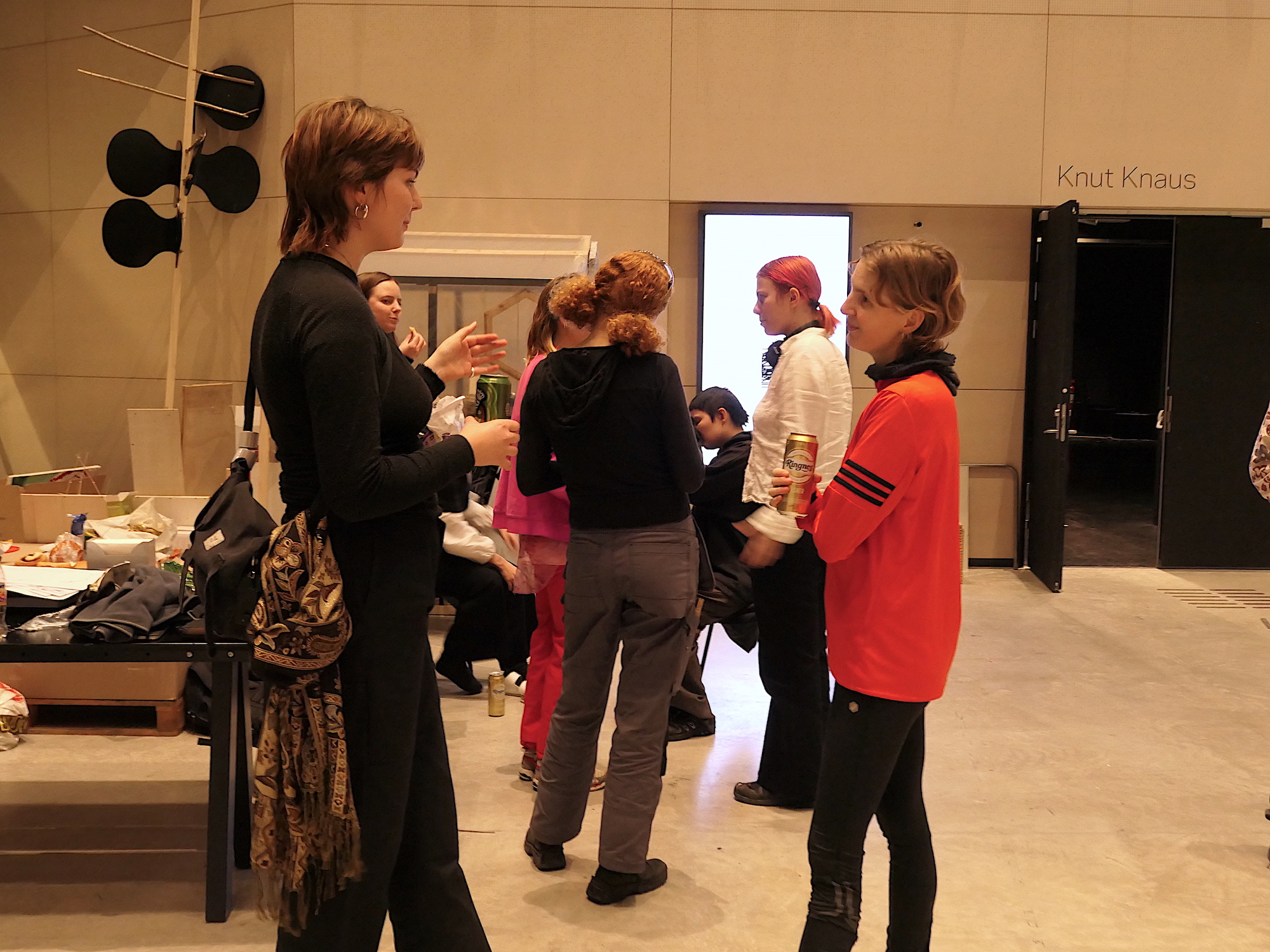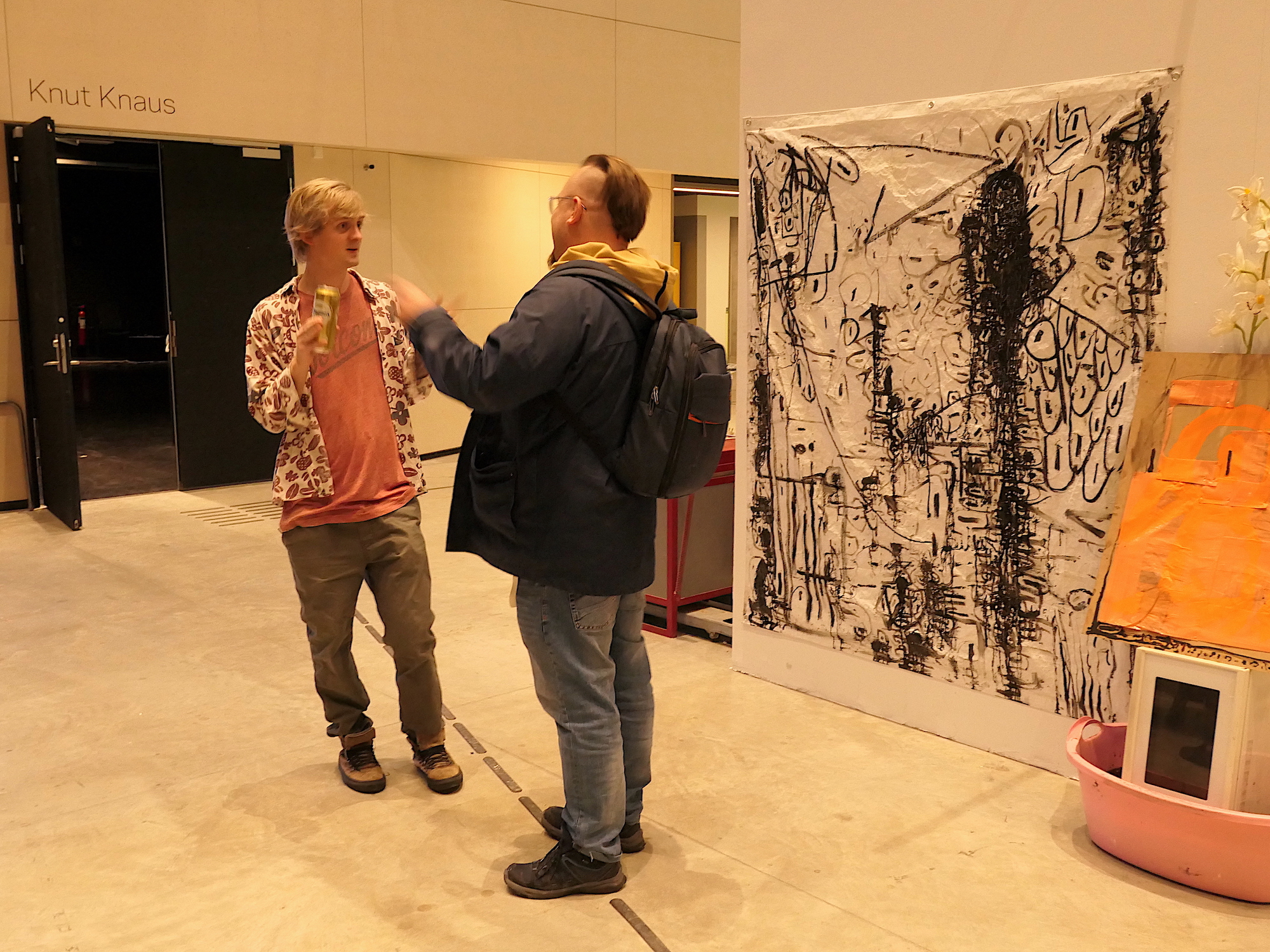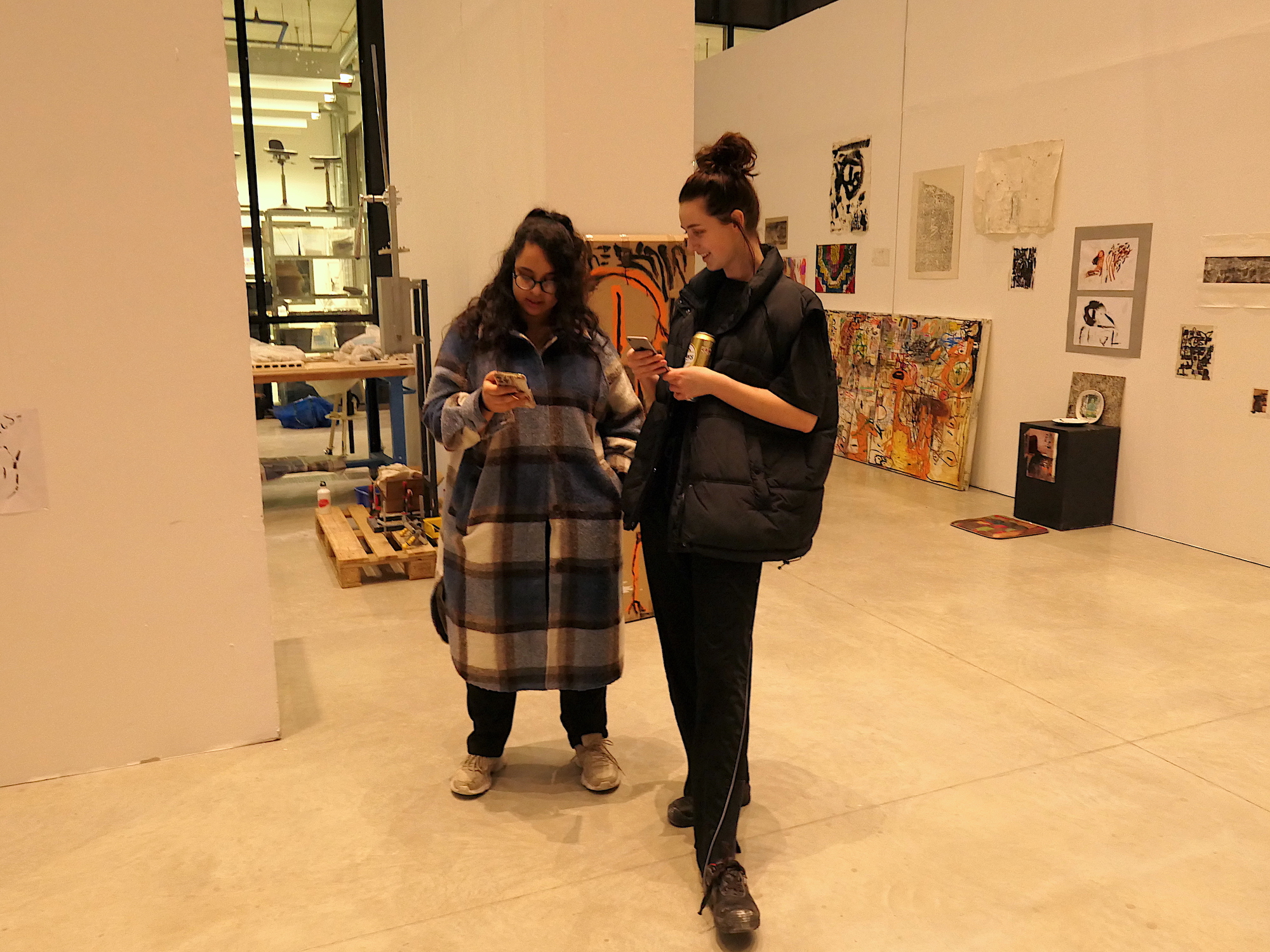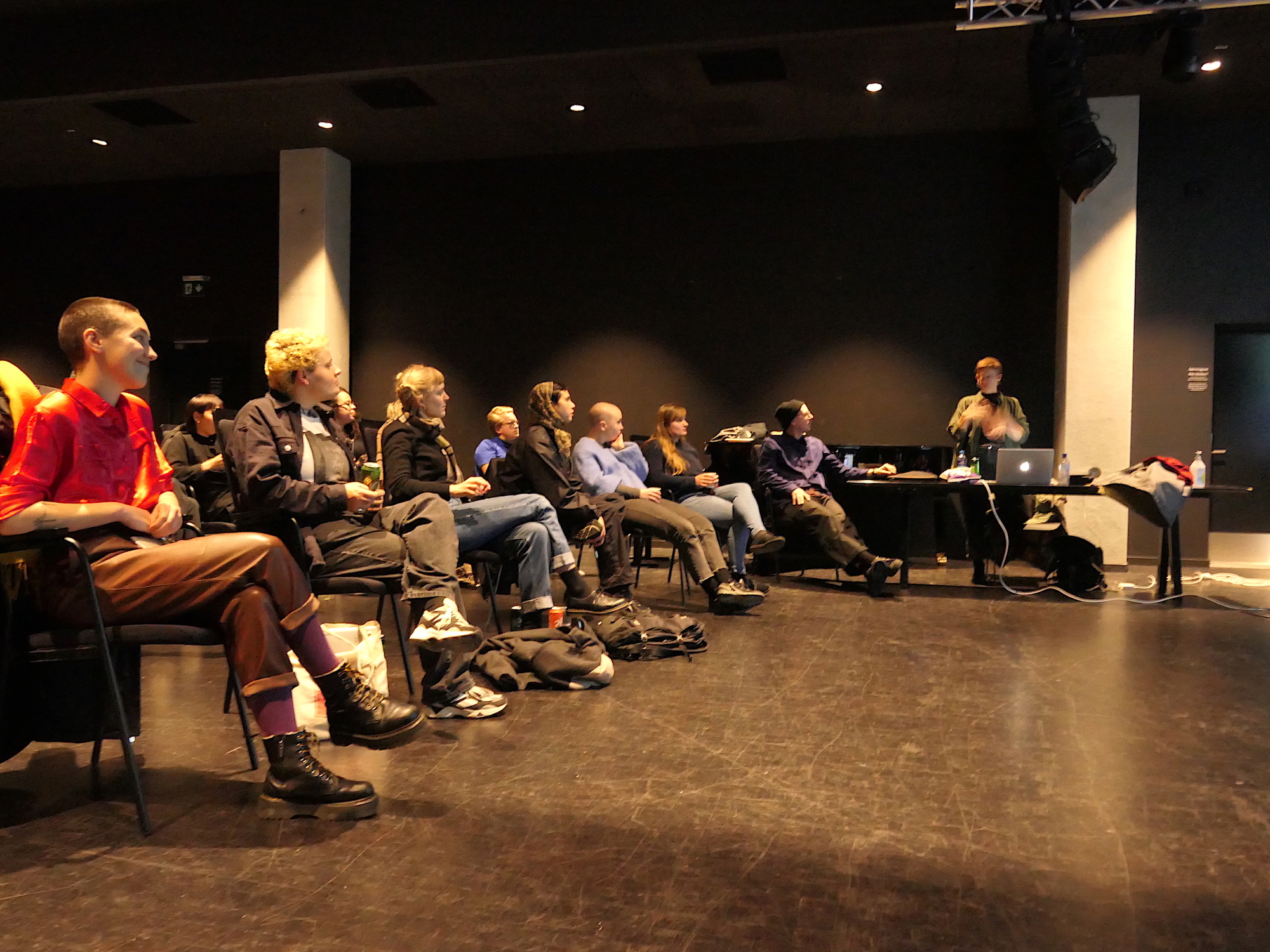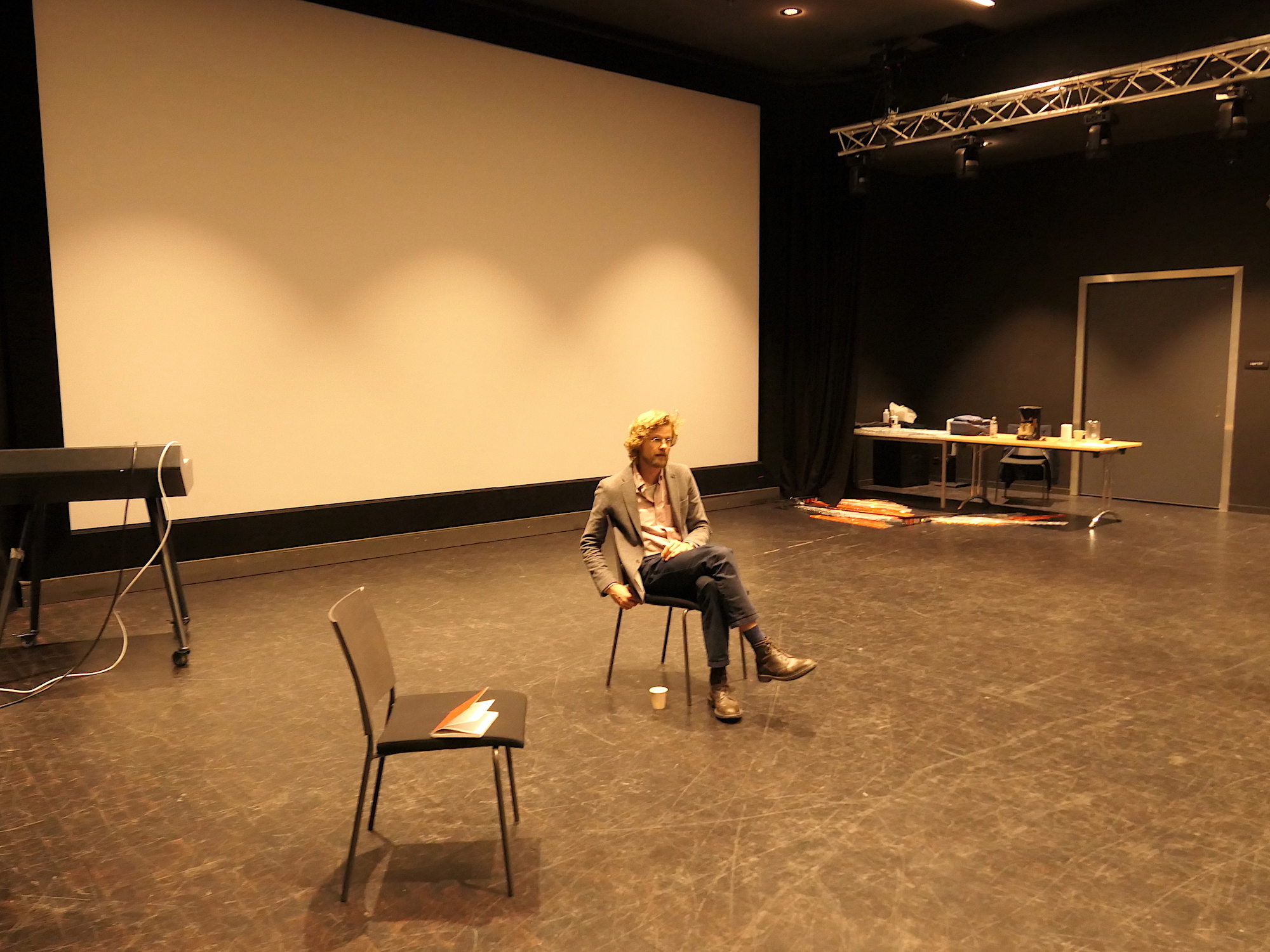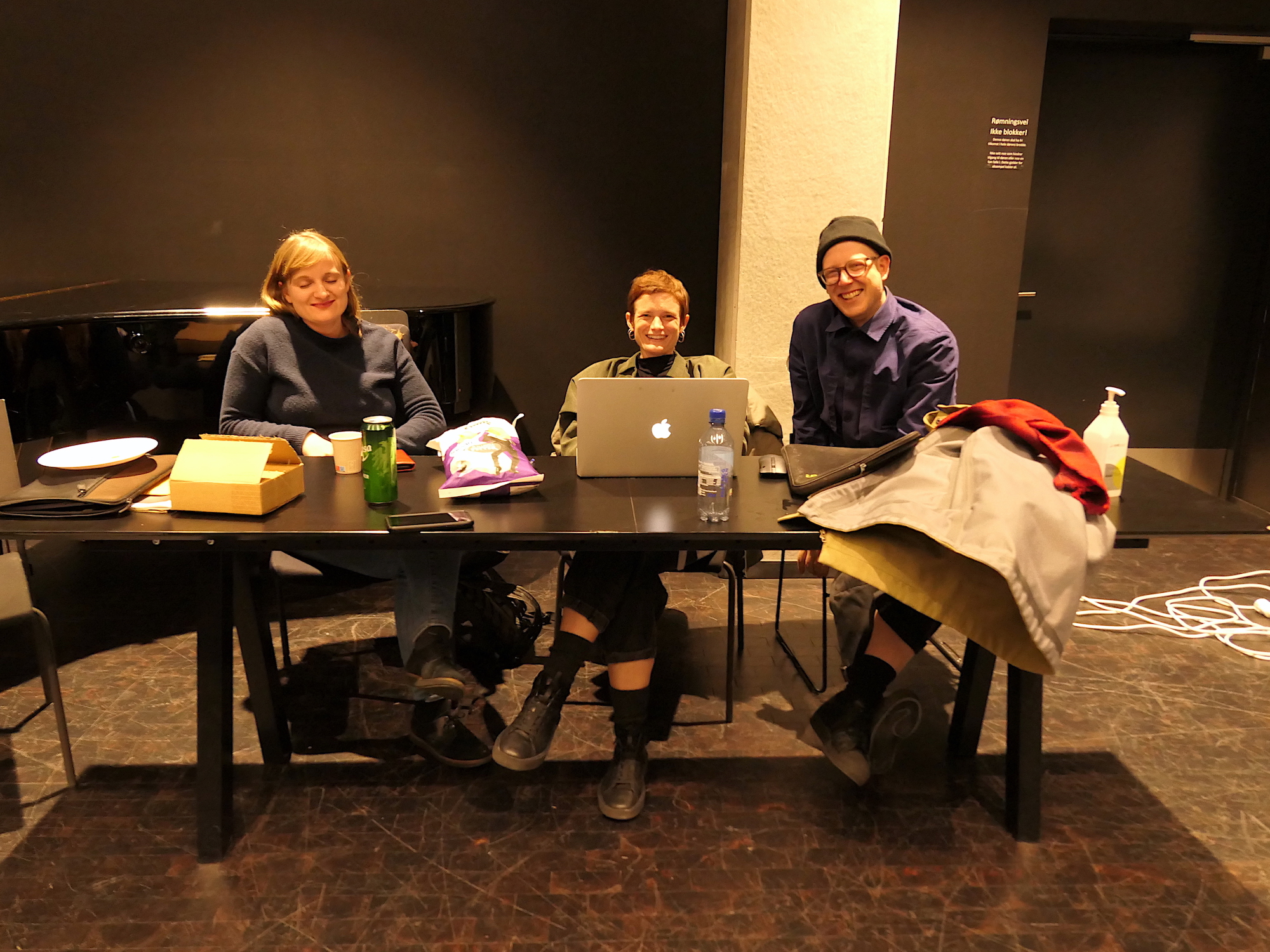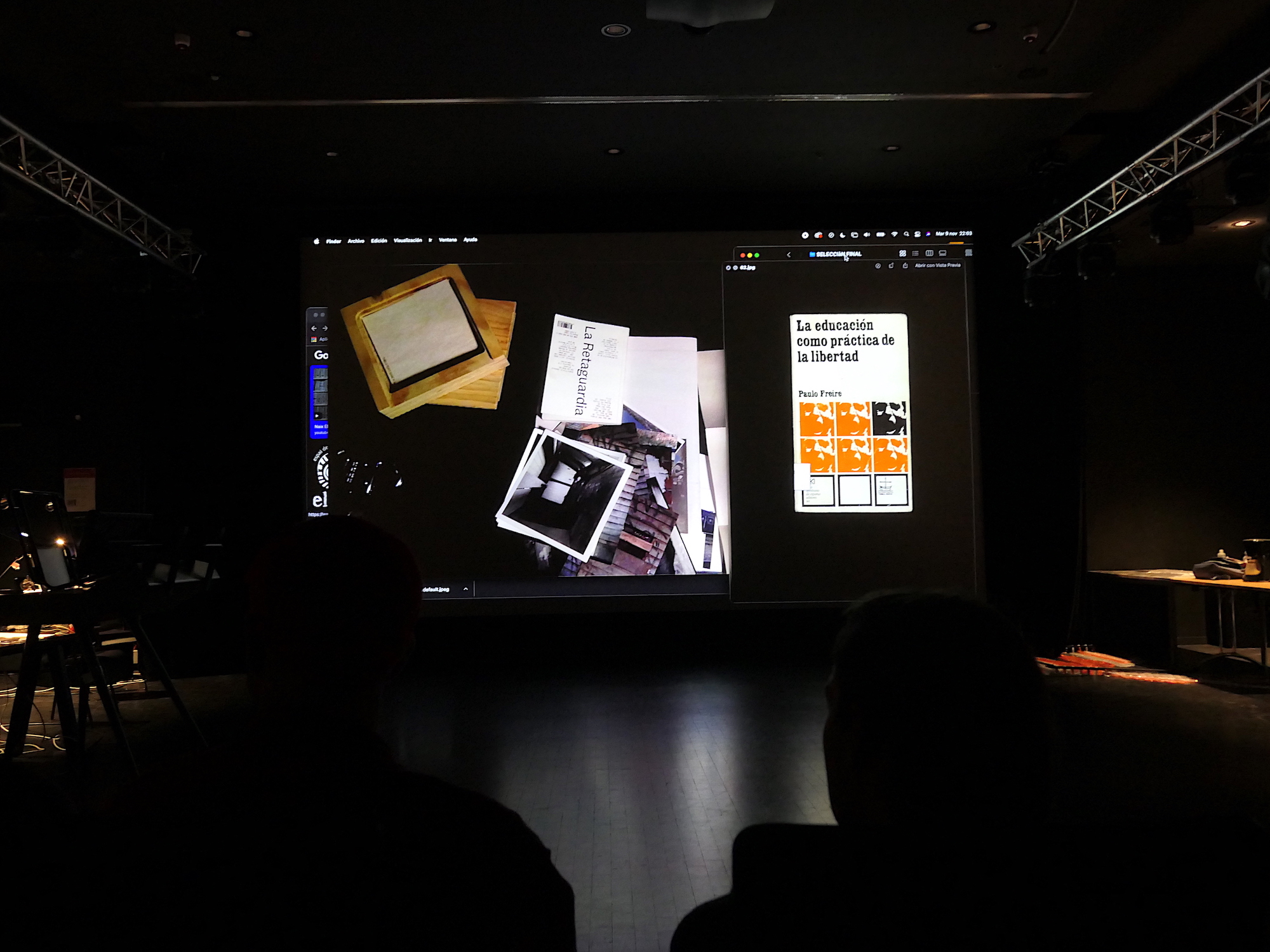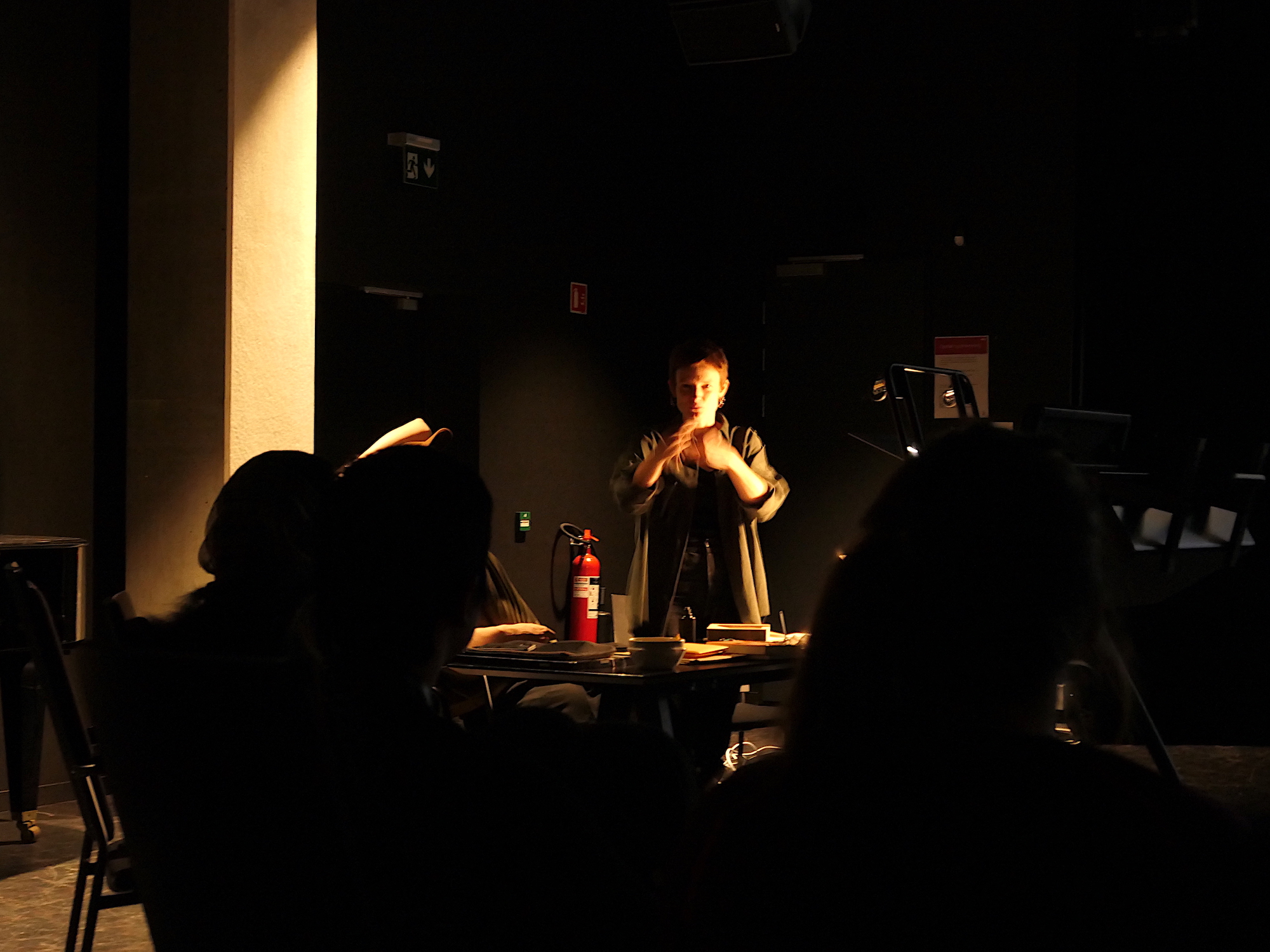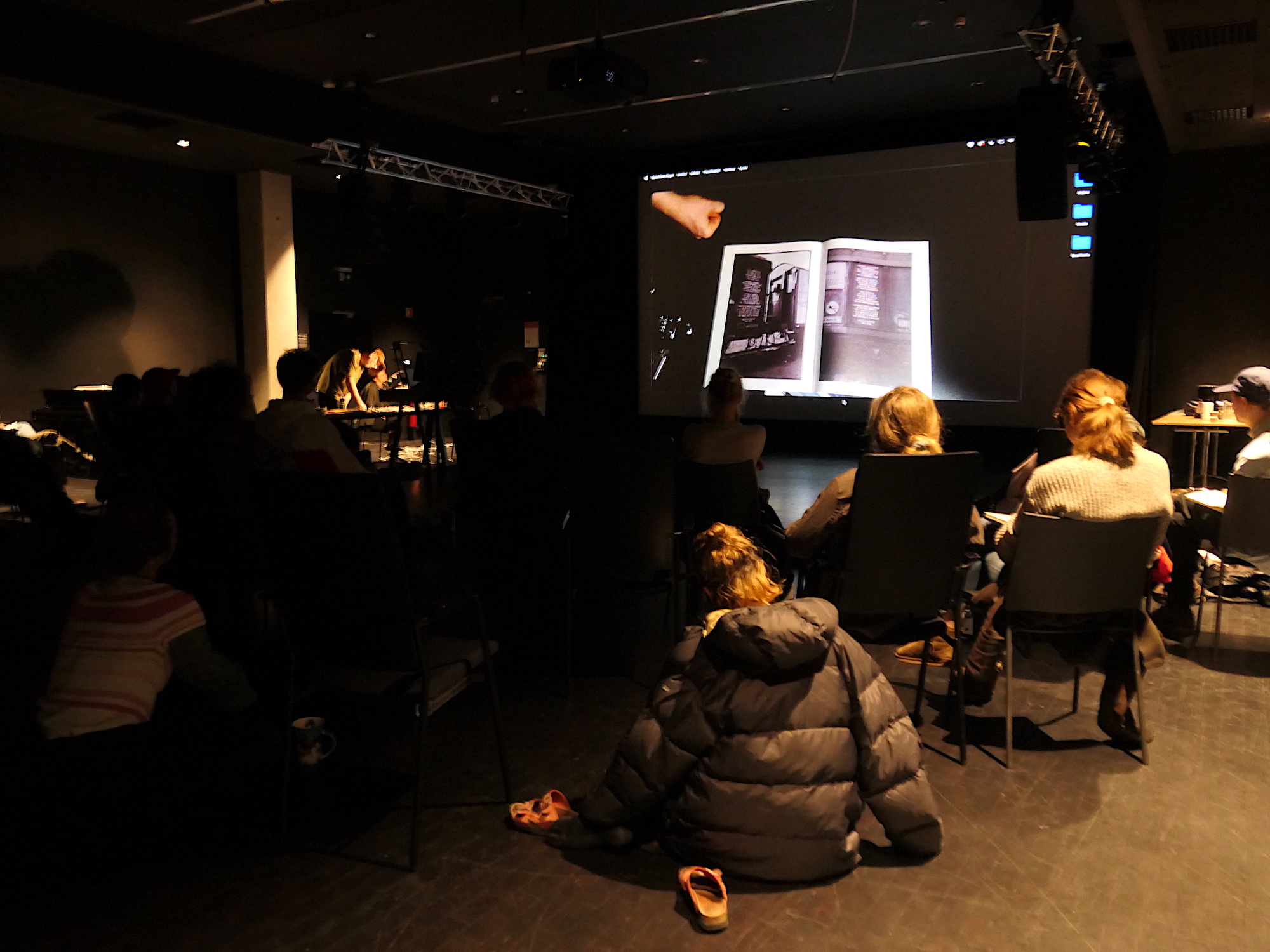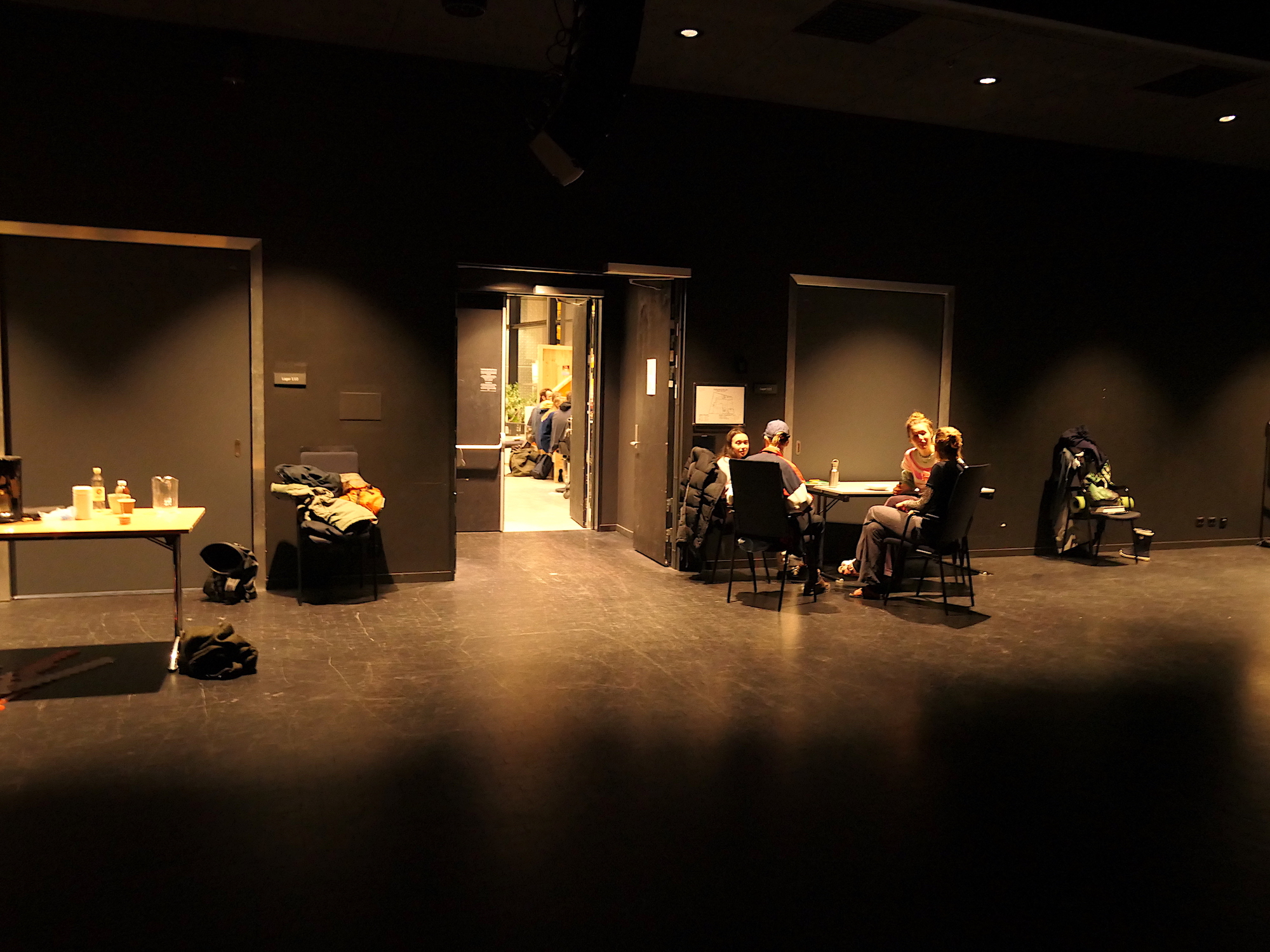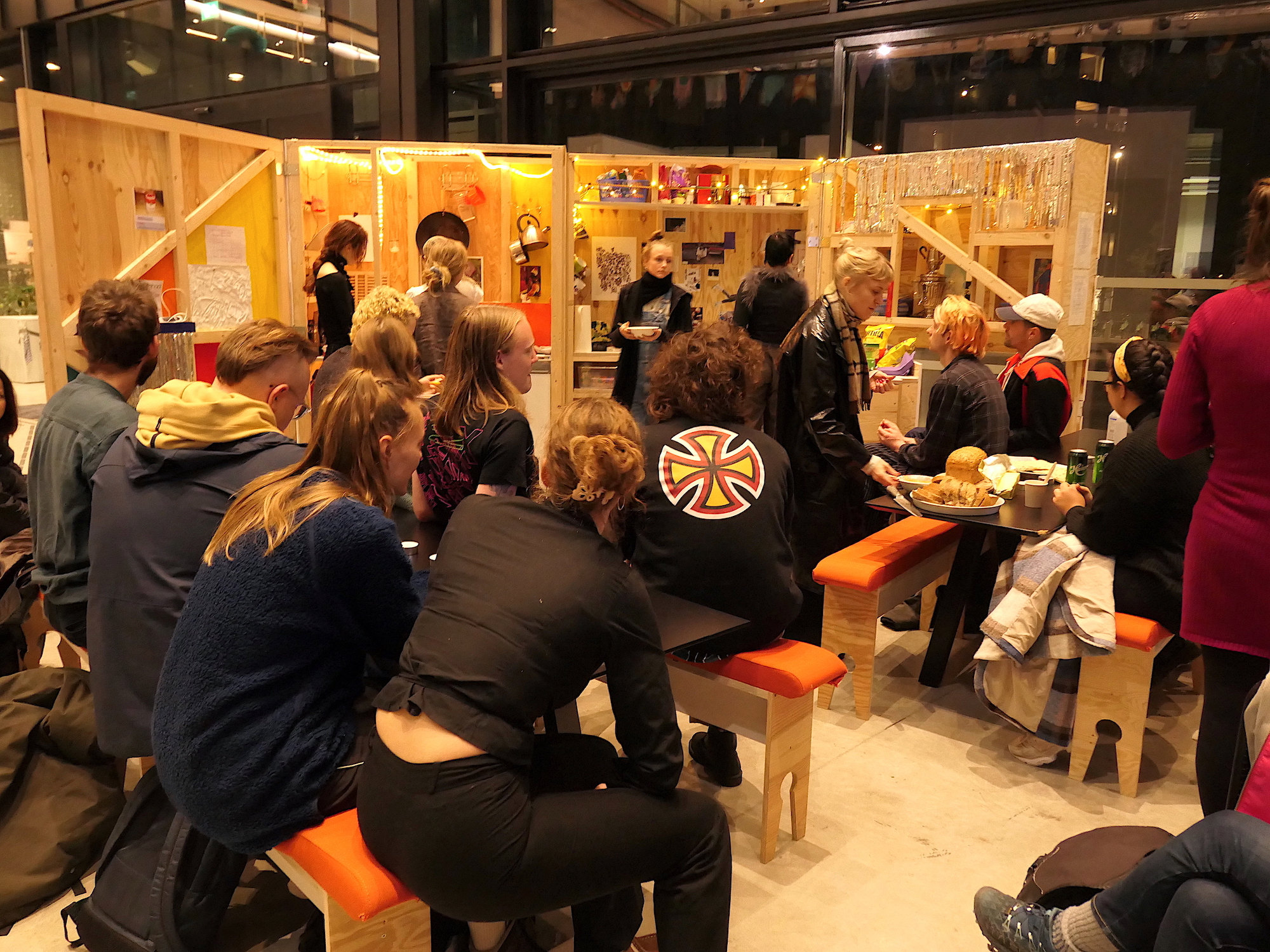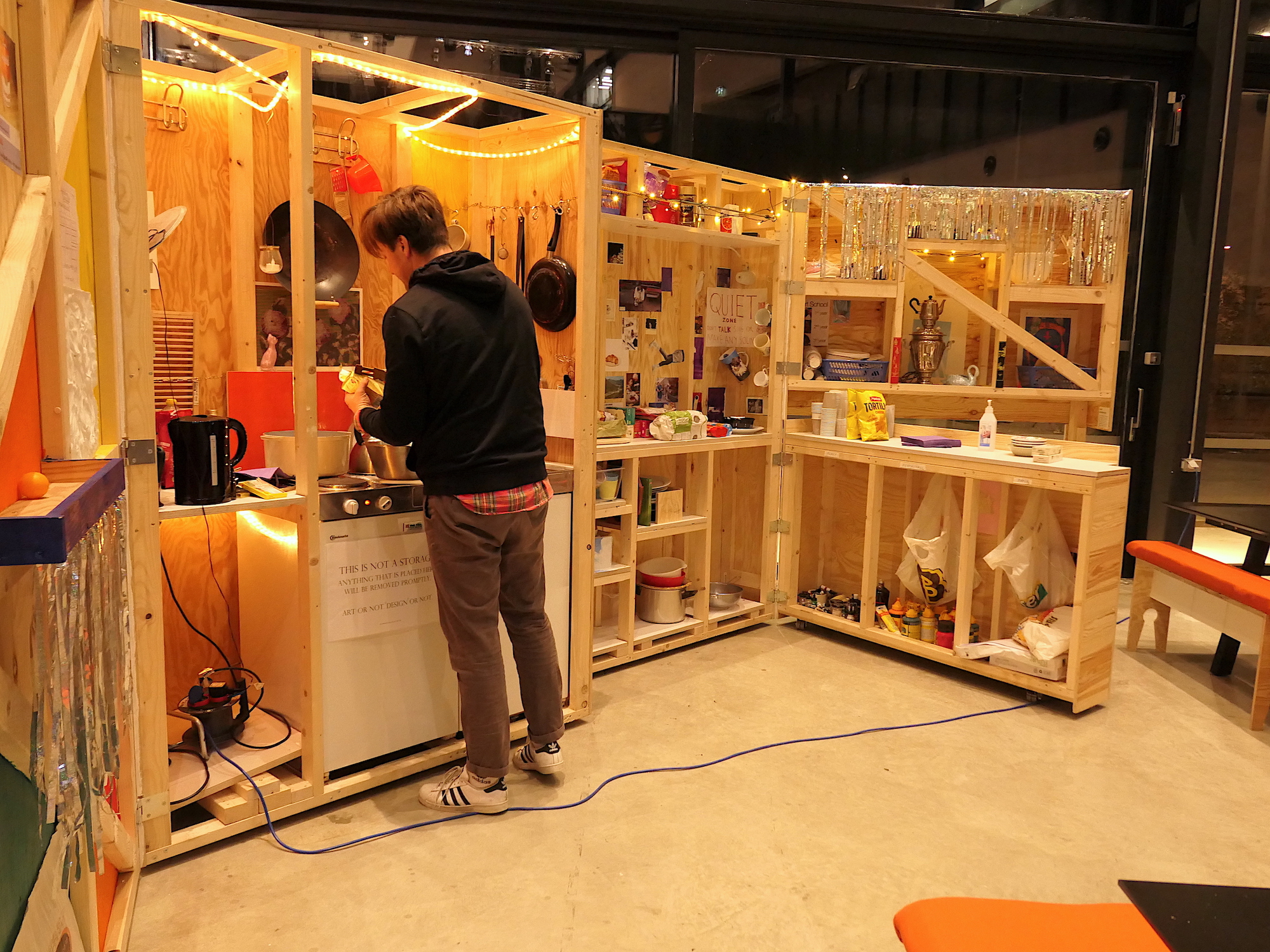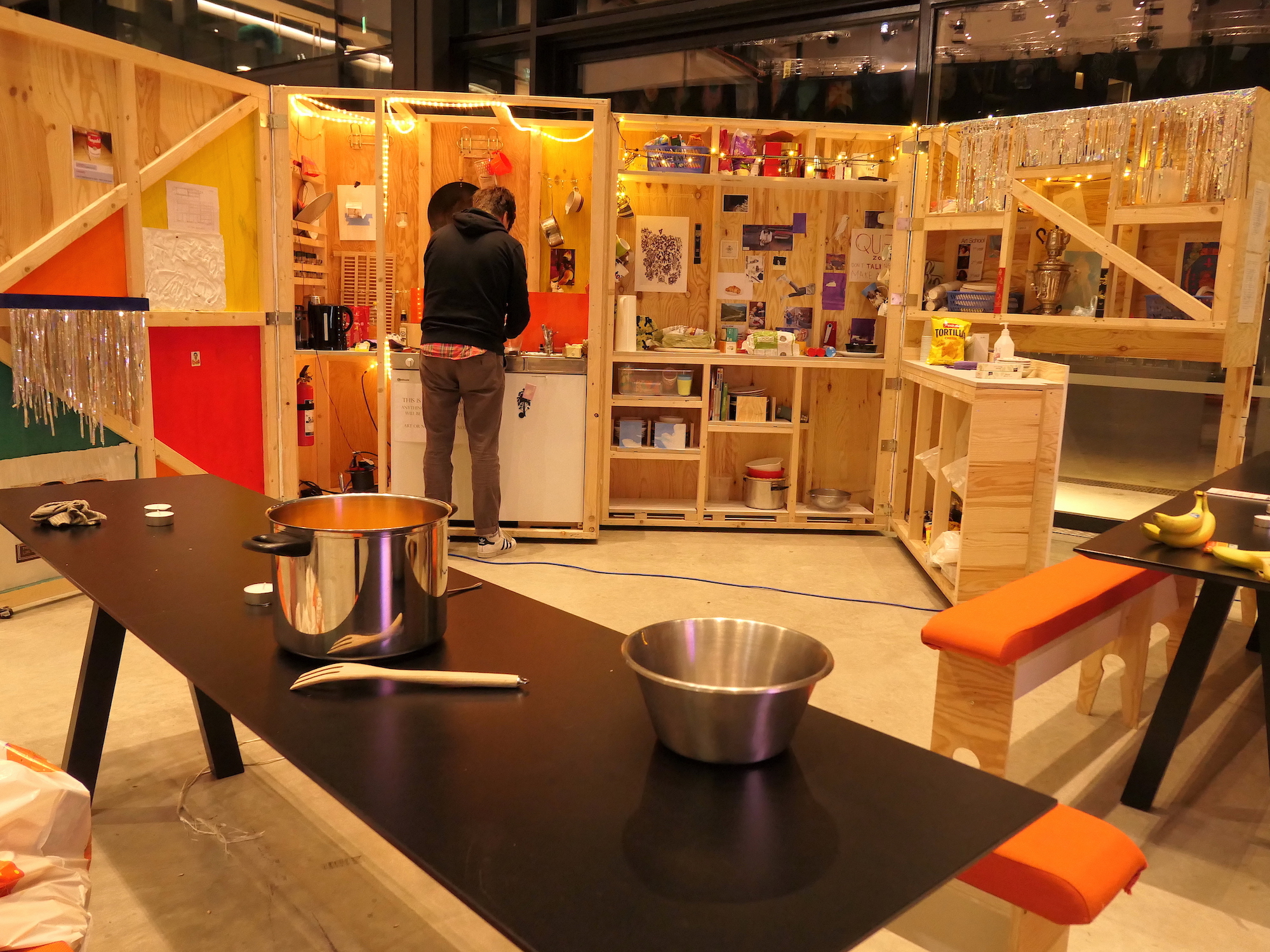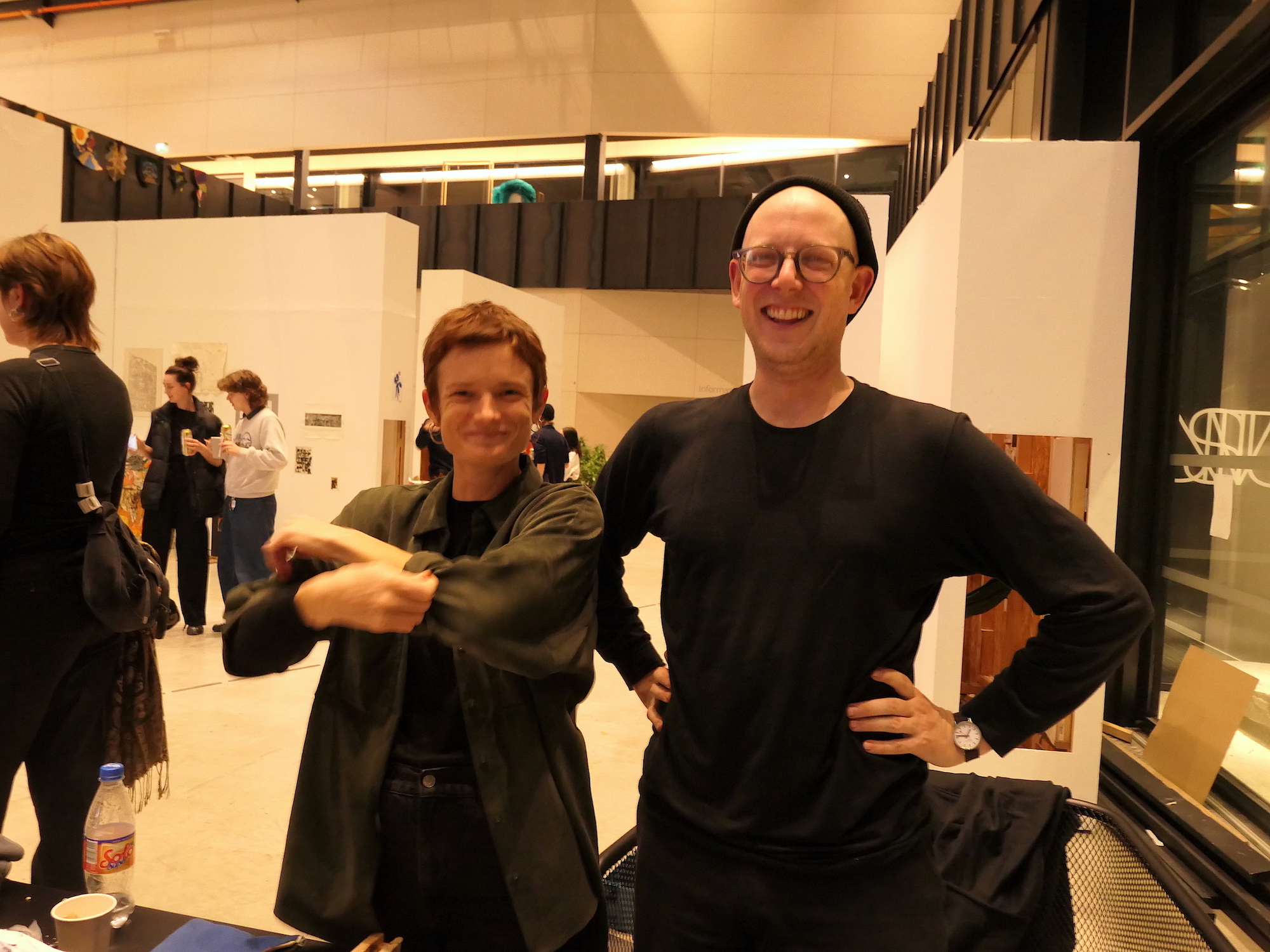November 9 – 11, 2021 / 19:00 – 22:00
Art Academy – Møllendalsveien 61, Bergen / with Anaïs Florin, Adam Kraft, Magnus Helgesen, Kristoffer Jul-Larsen, Brandon LaBelle
For the fourth gathering of The Pirate Academy, we focus on the topic of Common Space. What distinguishes common space from other forms of space? In what ways does common space demand particular practices, from care to communal effort to shared responsibility? And how might such practices contribute to how we approach artistic practice, and the material crafting of aesthetic forms? Common space and practices of commoning are often based on establishing networks of shared resources, collective care, and mutual aid. From self-organized project spaces and collective funds to open source software and cooperative housing, commoning aims at articulating forms of shared life that necessarily interrupt the privatization of the self. Extending from practices of commoning, this session of the Pirate Academy will think through what is means to common by looking into practices of squatting taking place in Bergen from the 1980s to early 2000s. With guests Magnus Helgesen and Kristoffer Jul-Larsen, who were active in the squat at Sydneshaugen 10 before being evicted by UiB, we’ll learn from their experiences and how common space is always under threat. In addition, visiting artists Adam Kraft and Anaïs Florin will lead us into the arena of hidden practices, and how artistic practices can carve out clandestine and secret forms of work, including the occupation or demarcation of interstitial spaces and the recounting of forgotten histories – where common space shifts to a form of undercommons, or what Fred Moten also calls, life in the break.
Tuesday, November 9 / 19:00 – 22:00: introductory thoughts and perspectives on Common Space by Brandon LaBelle, including questions of social economy, relational value, and ethics of cooperation: the making of communities in movement shaped by “communist affection” //// our guest artists Adam Kraft and Anaïs Florin will continue by introducing us to their practices, and proposing a research activity: “For the occasion of the Pirate Academy we will present examples of transgressive praxis methodologies, actions and results from our ongoing research projects. Our studies grapple with the raging neoliberalization of cities, with its combination of privatization, gentrification and social centrifugation. Concerned with the impact of cultural work as an accelerator of these factors, we explore models for how critical stances can be sustainably processed, produced and performed to avoid being co-opted and colonized by the hegemonic apparatus. With experiments and interventions we set out to chisel tactics that deny borders and merges the disciplines of craft, technology, architecture, design, art & communication. This includes defending territories, reclaiming centrality, assembling critical commons – all with the purpose of activating imaginations for living and action. Join us in exploring possibilities for commoning the art academy environment.”
Wednesday, November 10 / 19:00 – 22:00: we continue exploring issues of Common Space through a discussion on the history of squatting in Bergen from the 1980s to the 2000s; the squatters Magnus Helgesen and Kristoffer Jul-Larsen will visit us, to share their stories and experiences as squat makers and defenders in the early 2000s. Through an informal conversation, we’ll open up different perspectives and reflections on the meaning of squatting, and how squatting may teach us something about artistic practice: in what ways do artists squat institutional environments? Are artists fundamentally squatters, occupying particular vocabularies, theories, material traditions, and steering them toward other modes of inhabitation?
Thursday, November 11 / 19:00 – 22:00: concluding our Pirate gathering, Adam Kraft and Anaïs Florin will lead us into a form of collective activity, where we’ll undertake to construct an archive dedicated to the history of squatting in Bergen, and more, to issues of common space and how such practices may apply to the KMD building: we’ll think through in what ways we perform as squatters at KMD, carving out instances of common space through our daily routines, our shared conversations, the making of friend-families, and the ways in which we come to occupy KMD – we invite everyone to share in this special journey, where we craft the archive together and insert it into the architecture of KMD, to become caretakers for the living-body of history, memory, which can act as a critical resource for generations of student-squatters to come.

